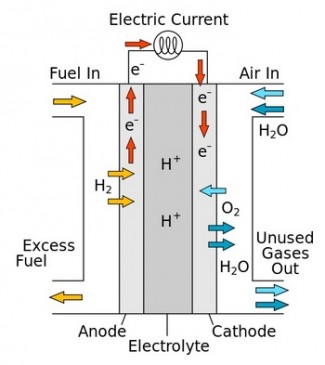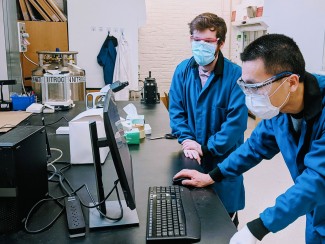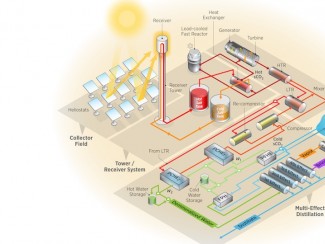
In the quest for better, less expensive ways to store and use energy, platinum and other precious metals play an important role. They serve as catalysts to propel the most efficient fuel cells, but they are costly and rare.
Now, a metal-free alternative catalyst for fuel cells may be at hand. In a study published July 15 in ACS Central Science, a team of chemists from the University of Wisconsin-Madison introduces a new approach that uses a molecular catalyst system instead of solid catalysts. Although molecular catalysts have been explored before, earlier examples were much less efficient than the traditional platinum catalyst.
A fuel cell converts chemical energy into electricity by reacting hydrogen and oxygen at two different electrodes. A catalyst makes the reaction more efficient.
UW-Madison chemistry Professor Shannon Stahl and lab scientist James Gerken took inspiration from their group's previous work with catalysts that use oxygen in applications for the chemical industry. They noticed a striking similarity between these aerobic oxidation reactions and the oxygen reaction in fuel cells and decided to see if they could apply a similar approach to a fuel cell.
The new catalyst is composed of a mixture of molecules called nitroxyls and nitrogen oxides. These molecular partners play well together; one reacts well with the electrode while the other reacts efficiently with the oxygen.




